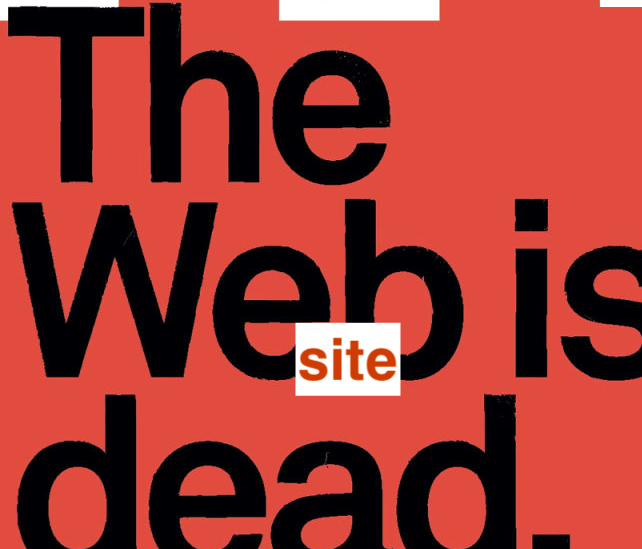"Civilisation is a heat engine". That civilisation and it's dominant culture is facing a torrid future, consumed by climate catastrophes, global warming, mass exodus and socio-economic destabilisation. As nation states, institutions and corporations pledge to remove CO2 from the atmosphere using “negative emissions technologies” (NETs), the compounding effect of climate caused disruption rises exponentially. The race for a 'Net Zero World' is on! Civilization marching towards a future replete with speculation, with new hopes pegged on a 'Net Zero Ecosystem'. "The root cause of global warming is the contradiction between civilization and the natural world. Climate change is a symptom - not the root problem. A doctor who treats only symptoms of an illness, without addressing the underlying root cause, can never cure the disease." states Bob Berwyn, a climate-scientist. If one views climate-change and global warming as a disease, understanding and combating the root cause is vital (fundamentally) to resolve the given illness. Objectively speaking NETs are still prospective – ideas purely based on emerging technology, depending on big finance - which then equates to a 'risk versus reward based future' - NETs, they do not exist yet. The article is a brief introduction about the global advent of Net Zero, focussing on contemporary scientific narratives and some of it's contradictions. What are some of the leading voices and critics envisioning, in terms of a Net Zero future?
Recent research and computer models predict that stopping greenhouse gas emissions will "break" the vicious cycle of warming temperatures - slowing down melting ice, reducing wildfires and consequently retard the rising sea levels. The leading voices of Net Zero claim such a "break" can be achieved faster, than what was expected just a few years ago. “Net-zero” has only recently become widespread and mainstream, and its introduction was carefully organised, as an important effort to bring more clarity to the debate. Read more about the basic tenets of Net Zero. "Global warming is another sign that heat being trapped by greenhouse gases is overwhelming the planet’s natural variability. We cannot establish certainty that Net Zero will be effective to reverse the already alarming effects of global warming." says Jennifer Francis, a climate scientist at the Woodwell Climate Research Center. The same can be said about global warming being addressed by technology alone. Simply, that our relationship with nature is broken. This root cause must be addressed and tackled, and no doubt that faith in technology is not sufficient (less ready) to combat the environmental crisis globally.
Climate restoration and Net Zero make for great promise, yet not succinct enough to address the "broken relationship" - rooted in an anthropocentric mindset dictated by the dominant culture. "I think about David Brower, one of the original founders of the Sierra Club, The Earth Island Institute... was involved in the heyday of the environmental movement, and when he retired, he said something like - all I have done in my career is slow the rate at which things are getting worse... So he was recognising the failures of his own defensive approach to the environmental movement... And I think thats one of the main issues with the movement - it's inability to be more than defensive in nature. It's inability to turn the tide on species extinction and global warming..." states Max Wilbert, heading Deep Green Resistance, a radical environmental action-group based in the U.S. The Net-Zero movement is a vastly exciting field yet defensive in nature, willy nilly dependent on big finance, propaganda and eventually capitalism. The irony of it being vouched fervently by many many leading institutions and scientists. 'Decarbonization' seems intuitively a good thing for sustainability and the ecosystem, but nothing is guaranteed to the vast majority of the world's population, especially those billions who live in Africa, Asia, Latin-America, the vast number of islands and Oceania.
Recent research and computer models predict that stopping greenhouse gas emissions will "break" the vicious cycle of warming temperatures - slowing down melting ice, reducing wildfires and consequently retard the rising sea levels. The leading voices of Net Zero claim such a "break" can be achieved faster, than what was expected just a few years ago. “Net-zero” has only recently become widespread and mainstream, and its introduction was carefully organised, as an important effort to bring more clarity to the debate. Read more about the basic tenets of Net Zero. "Global warming is another sign that heat being trapped by greenhouse gases is overwhelming the planet’s natural variability. We cannot establish certainty that Net Zero will be effective to reverse the already alarming effects of global warming." says Jennifer Francis, a climate scientist at the Woodwell Climate Research Center. The same can be said about global warming being addressed by technology alone. Simply, that our relationship with nature is broken. This root cause must be addressed and tackled, and no doubt that faith in technology is not sufficient (less ready) to combat the environmental crisis globally.
Climate restoration and Net Zero make for great promise, yet not succinct enough to address the "broken relationship" - rooted in an anthropocentric mindset dictated by the dominant culture. "I think about David Brower, one of the original founders of the Sierra Club, The Earth Island Institute... was involved in the heyday of the environmental movement, and when he retired, he said something like - all I have done in my career is slow the rate at which things are getting worse... So he was recognising the failures of his own defensive approach to the environmental movement... And I think thats one of the main issues with the movement - it's inability to be more than defensive in nature. It's inability to turn the tide on species extinction and global warming..." states Max Wilbert, heading Deep Green Resistance, a radical environmental action-group based in the U.S. The Net-Zero movement is a vastly exciting field yet defensive in nature, willy nilly dependent on big finance, propaganda and eventually capitalism. The irony of it being vouched fervently by many many leading institutions and scientists. 'Decarbonization' seems intuitively a good thing for sustainability and the ecosystem, but nothing is guaranteed to the vast majority of the world's population, especially those billions who live in Africa, Asia, Latin-America, the vast number of islands and Oceania.
As pressure grows globally to curb GHGEs (green house gas emissions) - transport, construction, military complex, agriculture, cattle-farming and mining remain the biggest culprits in terms of consumption of energy and CO2 emissions. Since they are collectively responsible for about 84% of the world's CO2 emissions, climate change goals will be nearly impossible without radical changes across the above mentioned sectors. Where we go - What we make - How and where we live - What we eat? And can we compensate all that for Net Zero? During 2019 - 2020 the Chinese, Indians and Americans contributed 51% of CO2 emissions globally. Investments in energy efficiency indeed reduce carbon emissions. This is true for a nation, a city, a household and an individual. However Net-zero plans that rely on 'promises of future carbon removal' – instead of reducing emissions of today, are therefore placing a big risky bet. If the technologies anticipated to remove huge quantities of carbon in the 2030s and 2040s fail to work as expected - What then? Canadian climate scientists Goeff Strong outlines the numeric hoodwink behind Net Zero, for his own nation in a recent email as "why countries like Canada went with choosing a ‘baseline’ year (2005 for Canada when we were 730 MT). Then ‘net-zero’ is simply the difference between emissions at 2050 and the baseline year. I’m afraid that ‘net-zero’ as they’ve chosen it, is “NOT going to keeping the world safe and livable for our kids and grandkids”; for one reason: the so-called sequestration methods (planting trees, DAC, and CCS, which is really CCUS, which simply helps increase emissions) will not make a measurable counter to annual emissions, which is what they are stating in climate plans! Nor are these presently viable to help draw down atmospheric CO2, except in a few hundred years. DAC has some hope of helping the drawdown, but someone has to pay the cost of building all the facilities, and they’d better operate them with renewable energy."
World-renowned economist Robert Pollin (University of Massachusetts Amherst) is one of the leading proponents of a global Green New Deal. He argues “degrowth vs. Green New Deal debate, looking at how economies can grow while still advancing a viable climate stabilization project as long as the growth process is absolutely decoupled from fossil fuel consumption…” in a recent article at Truthout.org. Robert Pollin and many supporters of the Green New Deal conveniently skip two important hitches facing "a viable climate stabilization project". Firstly, annual carbon emissions are still climbing, in terms of collective human output and rate of industrialization. Secondly, Jevon’s Paradox. Net Zero experts emphasize a lot on carbon utilisation, yet the bold new ideas and policies silently concur that emissions will continue – either elsewhere, or at the end of life of any product. Folks who swear by electric vehicles, solar panels and windmills seldom look at the devastating effects of mining in Africa, Latin America and India, while remaining clueless about the "finite limits" of every non-renewable resource. We ask how useful or future-proof is the idea, globally speaking? We are told that "climate ambition and environmental accountability has been increasingly pledged by majority of the nations - especially by the smaller and less developed ones, along with most of the european and latin american countries. The biggest emitters being China, India and United States, are absent from the pledge and accountability as yet..." by carbonbrief.com
One part of the Net Zero debate, lead by scientists armed with computational models and data, is putting immense faith on technology and future-science, as a global shift to combat climate-change and global warming. A set of changes that are being constantly revised, for the better we hope. “It is our best understanding that, if we bring down CO2 to net zero, the warming will level off. The climate will stabilise within a decade or two... There will be very little to no additional warming. Our best estimate is zero.” published recently by Inside Climate News. The contradictory points of view, also sustained by evidence and peer reviewed science, terms Net Zero as insufficient - "As much faith and justification one can place on COP and the Net Zero mandate, one cannot negate the risk of near-term societal collapse and the given rate of extinction that is taking place on a planetary scale. By 2030, we could be witnessing an uneven ending of our normal modes of sustenance, shelter, security, pleasure, identity and meaning... the most important climate science of the last few years and how it is leading more people to conclude that we face disruptive changes in the near-term." states professor Jem Bendell is his essay Deep Adaptation. Watch professor Guy Mcpherson present a set of alarming facts, which are not accounted for in Net Zero policies, risk factors rising due to the unpredictable nature of abrupt climate-change. About 4 million people were rendered homeless in 2020 alone, due to natural catastrophes around the world. Not a single environmental group or body of scientists could guess that number, given all the computational power and data at hand. Globally, the idea of Net Zero gets rather murky, as we cross economic and geographic boundaries. Is Net Zero for one and all? Listen to Canadian scientists reveal the fallacy of Net Zero Future. Well, in reality it creates little 'providence' for a vast number of people. Little does a mother of three children in Bangladesh, working twelve hour shifts for less four dollars a day, care about Net Zero, as little does Elon Musk, the billionaire technocrat, taking transcontinental flights every week - yet both emitting their 'laissez-faire' share of deadly CO2 into the atmosphere everyday. The former doing so as a matter of survival and the latter because it's business-as-usual. Regardless of our identity, and role in society, a 'climate controlled' future approaches us, faster than ever.
The debate about Net Zero is important. Yet something more vital, is what has been long known to be true : decades ago. That global warming should not be our main focus. Rather, we should focus on halting the destruction of the natural world. Focus on our actions and lifestyle and consequently on future pathways. If we do this successfully, the climate will heal, perhaps during our lifetimes. As artists of any society, we are obliged to think and act towards a vastly reduced carbon footprint - no questions about that. Who does it and how is trivial, yet what is vital, is to do so persistently as a conscious citizen of the planet.
The debate about Net Zero is important. Yet something more vital, is what has been long known to be true : decades ago. That global warming should not be our main focus. Rather, we should focus on halting the destruction of the natural world. Focus on our actions and lifestyle and consequently on future pathways. If we do this successfully, the climate will heal, perhaps during our lifetimes. As artists of any society, we are obliged to think and act towards a vastly reduced carbon footprint - no questions about that. Who does it and how is trivial, yet what is vital, is to do so persistently as a conscious citizen of the planet.






























0 -